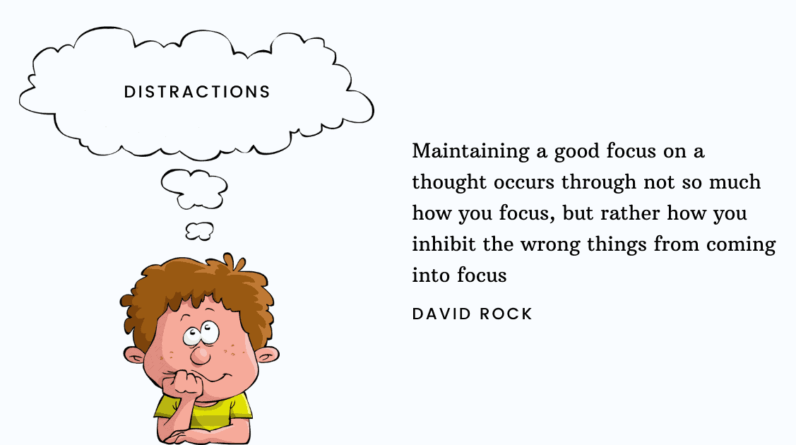Have you ever wondered how some people seem to always have a positive attitude, no matter what challenges they face? It’s like they have a secret weapon that allows them to navigate through life’s ups and downs with a smile on their face. Well, the truth is, maintaining a positive attitude is not some mysterious skill that only a lucky few possess. It’s a mindset that can be cultivated and practiced by anyone willing to put in the effort. So, if you’re ready to uncover the secret to maintaining a positive attitude, keep reading.

The Importance of Maintaining a Positive Attitude
Positive Attitude as a Key to Success
Maintaining a positive attitude is essential for personal and professional success. It is the key that unlocks doors to new opportunities and helps navigate through challenges. A positive attitude allows you to approach situations with an optimistic mindset, which can lead to better outcomes. It helps you stay motivated, focused, and resilient, even in the face of adversity. By maintaining a positive attitude, you are more likely to attract positive experiences and attract positive people into your life.
The Impact of a Positive Attitude on Mental and Physical Health
Apart from its influence on success, a positive attitude also plays a crucial role in mental and physical health. Numerous studies have shown that maintaining a positive attitude can have a significant impact on overall well-being and happiness. It helps reduce stress levels, improves immune function, and lowers the risk of developing mental health conditions such as anxiety and depression. Additionally, a positive attitude can enhance physical well-being, leading to improved cardiovascular health, reduced pain perception, and increased longevity.
Understanding the Science Behind Positive Attitude
The Role of Neurotransmitters
Maintaining a positive attitude is not just a matter of willpower or mindset; it also has a scientific basis. Neurotransmitters, such as dopamine, serotonin, and endorphins, play a crucial role in regulating mood and emotions. Positive thinking and maintaining a positive attitude can stimulate the release of these neurotransmitters, resulting in feelings of happiness, pleasure, and overall well-being. By consciously cultivating positive thoughts and attitudes, you can influence the balance of neurotransmitters in your brain and promote positive mental health.
The Influence of Positive Thinking on the Brain
Positive thinking has been shown to have a profound impact on the brain. When you engage in positive thoughts and maintain a positive attitude, your brain experiences increased activity in regions associated with happiness, creativity, and problem-solving. This increased brain activity not only enhances cognitive function but also strengthens neural connections, making it easier for your brain to access positive emotions and thoughts in the future. As a result, maintaining a positive attitude becomes more natural and effortless over time.
Strategies for Cultivating and Nurturing a Positive Attitude
Embracing Gratitude and Mindfulness
One effective strategy for cultivating and nurturing a positive attitude is through the practice of gratitude and mindfulness. By focusing on the present moment and acknowledging the things you are grateful for, you can shift your attention away from negative thoughts and redirect it towards the positive aspects of your life. Regularly expressing gratitude and practicing mindfulness can help rewire your brain to notice and appreciate the small joys and blessings in everyday life, leading to a more positive outlook.
Surrounding Yourself with Positive Influences
Surrounding yourself with positive influences is another crucial strategy for maintaining a positive attitude. The people you interact with, the books you read, and the content you consume all have an impact on your mindset and outlook. Seek out individuals who radiate positivity, optimism, and encouragement. Engage in activities that inspire and uplift you. By surrounding yourself with positive influences, you will find it easier to maintain a positive attitude and overcome challenges with resilience and determination.
Practicing Positive Self-Talk
The way you talk to yourself has a significant impact on your attitude and self-perception. Practicing positive self-talk involves replacing negative and self-limiting thoughts with positive affirmations and empowering statements. Instead of saying, “I can’t do this,” cultivate a mindset of “I can overcome this challenge.” By consciously choosing positive and encouraging words, you can reshape your inner dialogue and boost your self-confidence. This, in turn, contributes to maintaining a positive attitude in all areas of life.
Setting Realistic Goals and Focusing on Progress
Setting realistic goals and focusing on progress is essential for fostering a positive attitude. Rather than dwelling on the end result, break down your goals into smaller, manageable steps. Celebrate each milestone and recognize the progress you have made, no matter how small. By acknowledging your accomplishments along the way, you maintain a sense of optimism and motivation. This positive mindset helps sustain your progress and allows you to approach future goals with confidence and enthusiasm.
Engaging in Regular Exercise and Physical Activity
Physical activity and exercise are not only beneficial for physical health but also play a significant role in maintaining a positive attitude. Regular exercise releases endorphins, also known as the “feel-good” hormones, which can improve mood and reduce stress. Engaging in activities that you enjoy, such as walking, dancing, or playing a sport, can bring joy and positivity into your daily routine. By incorporating regular exercise and physical activity into your lifestyle, you create a foundation for a positive attitude and overall well-being.
Challenges and Obstacles to Maintaining a Positive Attitude
Overcoming Negative Self-Talk and Inner Criticism
One of the significant challenges to maintaining a positive attitude is overcoming negative self-talk and inner criticism. It is common to experience self-doubt and negative thoughts that undermine your confidence and optimism. Recognize these thoughts as separate from your true self and challenge them with positive affirmations and evidence of your past successes. By reframing your self-talk and replacing negative thoughts with positive ones, you can overcome this obstacle and maintain a more positive attitude.
Dealing with External Negativity and Criticism
External negativity and criticism can also pose challenges to maintaining a positive attitude. Whether it comes from coworkers, friends, or society, external negativity can dampen your spirits and erode your confidence. In such situations, it is essential to engage in self-care practices, surround yourself with supportive individuals, and consciously choose not to internalize negative comments or opinions. By focusing on your own growth and staying true to your positive mindset, you can navigate through external negativity while maintaining a positive attitude.
Coping with Failure and Setbacks
Failure and setbacks are inevitable in life, and they can test even the most positive attitudes. However, maintaining a positive attitude in the face of failure is crucial for personal growth and resilience. Instead of dwelling on the negative aspects of failure, focus on the lessons learned and the opportunities for growth. Embrace failure as a stepping stone towards success and a chance to improve. By maintaining a positive attitude during setbacks, you open yourself up to new possibilities and maintain motivation to persevere.
Managing Stress and Building Resilience
Stress can significantly impact your attitude and overall well-being. Learning to manage and cope with stress is vital for maintaining a positive attitude. Explore stress management techniques such as deep breathing, meditation, or engaging in hobbies and activities that bring you joy. Building resilience is also essential for staying positive in challenging situations. Resilience allows you to bounce back from adversity and adapt to change, enabling you to maintain an optimistic outlook even during difficult times.

Building a Supportive Environment for Positivity
Creating a Positive and Inspiring Physical Space
Your physical environment plays a significant role in shaping your mindset and attitude. Creating a positive and inspiring physical space can contribute to maintaining a positive attitude. Surround yourself with objects, colors, and elements that uplift and energize you. Decorate your space with motivational quotes, photographs, and mementos of happy moments. Keep your surroundings clean, organized, and clutter-free. By creating a positive physical space, you create an environment conducive to maintaining a positive attitude.
Building Strong Relationships and Supportive Networks
The people you surround yourself with have a profound influence on your attitude and outlook. Building strong relationships and supportive networks is vital for maintaining a positive attitude. Surround yourself with individuals who believe in you, support your goals, and radiate positivity. Seek out friendships and connections that inspire and motivate you. Nurture these relationships by regularly communicating, expressing gratitude, and offering support. By building a network of supportive individuals, you create a foundation for a positive attitude and personal growth.
Surrounding Yourself with Positive Role Models
Positive role models can act as a source of inspiration and guidance in maintaining a positive attitude. Look for individuals who embody the qualities and attitudes you aspire to cultivate. Study their mindset, behavior, and approach to challenges. Learn from their experiences and seek their guidance when faced with obstacles. By surrounding yourself with positive role models, you can learn valuable lessons and adopt their strategies for maintaining a positive attitude.
Tips for Overcoming Negativity and Cultivating Optimism
Practicing Gratitude and Counting Blessings
Practicing gratitude is a powerful tool for overcoming negativity and cultivating optimism. Take a few moments each day to write down or reflect on things you are grateful for. Acknowledge the blessings, big or small, in your life. By focusing on what you have rather than what you lack, you shift your perspective towards a more positive attitude. Cultivating gratitude allows you to find joy in the present moment and appreciate the abundance in your life.
Focusing on Solutions and Growth
When faced with challenges or setbacks, it is easy to dwell on the problem itself. However, maintaining a positive attitude involves shifting your focus towards finding solutions and promoting personal growth. Instead of getting caught up in negativity, approach difficulties with a problem-solving mindset. Seek out opportunities for growth and learning. By focusing on solutions and growth, you maintain a positive attitude and empower yourself to overcome obstacles.
Maintaining a Healthy Work-Life Balance
Maintaining a healthy work-life balance is essential for preventing burnout and preserving a positive attitude. Strive to create boundaries between work and personal life. Dedicate time to activities you enjoy outside of work, such as hobbies, spending time with loved ones, or self-care. Prioritize self-care practices that promote relaxation and recharge your energy. By maintaining a healthy work-life balance, you allow yourself the space to cultivate a positive attitude and overall well-being.
Learning from Mistakes and Viewing Challenges as Opportunities
Mistakes and challenges are part of life, and maintaining a positive attitude involves learning from them rather than dwelling on them. Embrace mistakes as learning opportunities and stepping stones towards personal growth. View challenges as chances to develop resilience, creativity, and problem-solving skills. By adopting a growth mindset, you can transform setbacks into opportunities for self-improvement and maintain a positive attitude along the way.
Developing a Sense of Humor and Finding Joy in Life’s Simple Pleasures
A sense of humor and the ability to find joy in life’s simple pleasures are instrumental in maintaining a positive attitude. Engage in activities that make you laugh and bring joy into your life. Surround yourself with lighthearted and positive content, such as comedy shows or uplifting books. Find humor in everyday situations and learn to laugh at yourself. By incorporating humor and finding joy in the simple pleasures, you infuse your life with positivity and maintain a positive attitude.

The Power of Positive Attitude in Personal and Professional Relationships
Enhancing Communication and Conflict Resolution
Maintaining a positive attitude has a profound impact on personal and professional relationships. It enhances communication by promoting open-mindedness, empathy, and understanding. A positive attitude allows you to approach conflicts and differences with a solution-oriented mindset, fostering better understanding and harmony. By maintaining a positive attitude in relationships, you create an environment of trust and cooperation that strengthens connections and leads to healthier and more fulfilling interactions.
Empathy and Understanding in Relationships
Empathy and understanding are key elements of maintaining positive relationships. A positive attitude cultivates empathy by allowing you to put yourself in others’ shoes and understand their perspectives. It promotes open-mindedness and a willingness to listen actively. By practicing empathy and understanding in your relationships, you build deeper connections, resolve conflicts more effectively, and contribute to a positive and supportive atmosphere.
Inspiring and Motivating Others through Positivity
Maintaining a positive attitude not only benefits your personal well-being but also has a significant impact on those around you. Your positive attitude can inspire and motivate others to adopt similar mindsets and attitudes. By radiating positivity, you become a source of encouragement and support for those around you. Your enthusiasm and optimism can uplift others during challenging times and create a ripple effect of positivity in your personal and professional relationships.
The Long-Term Benefits of Maintaining a Positive Attitude
Improving Overall Well-being and Happiness
One of the most significant long-term benefits of maintaining a positive attitude is the improvement of overall well-being and happiness. A positive attitude fosters a sense of contentment, fulfillment, and gratitude for life’s blessings. It allows you to navigate through life’s ups and downs with resilience and optimism, leading to a higher level of satisfaction and happiness.
Boosting Mental and Emotional Resilience
Maintaining a positive attitude contributes to the development of mental and emotional resilience. It strengthens your ability to cope with stress, setbacks, and challenges. By focusing on the positive aspects of life and staying optimistic, your resilience grows stronger, enabling you to bounce back from adversity and face future obstacles with greater confidence.
Increasing Motivation and Productivity
A positive attitude plays a vital role in increasing motivation and productivity. When you maintain a positive mindset, you approach tasks and responsibilities with enthusiasm and determination. You are more likely to take initiative, set ambitious goals, and work towards achieving them. This positive mindset translates into increased productivity and a greater sense of accomplishment.
Enhancing Personal and Professional Success
Maintaining a positive attitude paves the way for personal and professional success. A positive attitude attracts positive experiences and opportunities, making it more likely for you to achieve your goals. It fosters an optimistic and proactive mindset, which enables you to seize possibilities and overcome obstacles with resilience and determination. By maintaining a positive attitude, you create the necessary foundation for success in all areas of life.

How to Stay Positive in Challenging Situations
Accepting and Adapting to Change
Challenging situations often involve change, which can be unsettling and challenging to navigate. To stay positive, it is essential to cultivate an attitude of acceptance and adaptability. Embrace change as an opportunity for growth and personal development. Engage in self-reflection and focus on the possibilities that change can bring. By accepting and adapting to change, you maintain a positive attitude and remain open to new opportunities.
Finding Lessons and Silver Linings in Difficulties
Difficulties and challenges often come with valuable lessons and hidden opportunities. To stay positive in challenging situations, look for the silver linings and focus on the lessons learned. Shift your perspective from viewing difficulties as setbacks to seeing them as stepping stones towards personal growth and resilience. By finding the lessons and silver linings in difficulties, you maintain a positive attitude and empower yourself to overcome obstacles.
Seeking Support and Assistance when Needed
Staying positive in challenging situations does not mean facing them alone. Seeking support and assistance when needed is essential for maintaining a positive attitude. Reach out to family, friends, or professionals who can provide guidance, advice, or a listening ear. Surrounding yourself with a support system can offer different perspectives, encouragement, and emotional support. By seeking support and assistance, you relieve the burden and maintain a positive outlook in challenging times.
Conclusion
Maintaining a positive attitude is vital for personal well-being, relationships, and success. By understanding the science behind positive attitude and implementing strategies to cultivate and nurture it, you can reap its numerous benefits. Overcoming challenges and obstacles, building a supportive environment, and staying positive in challenging situations will contribute to long-term happiness, resilience, and personal and professional success. Embrace the power of a positive attitude and unlock the doors to a brighter and more fulfilling life.







